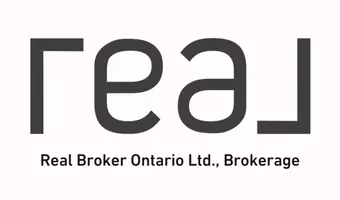Blog > Understanding Property Taxes And How They Are Calculated
Understanding Property Taxes And How They Are Calculated

As a property owner, understanding property taxes and how they are calculated is essential. Property taxes are a necessary part of owning real estate. However, they can often be a confusing topic for both buyers and sellers. Understanding how property taxes are calculated is important for all parties involved. Property tax is a levy imposed on a property by the municipality that is based on the assessed value of the property. The amount of tax you pay depends on the value of your property and the tax rate in your municipality.
For Buyers:
Understanding property taxes is important to factor into their budget and should be factored into the overall cost when purchasing a property. Property tax is an annual expense that is in addition to mortgage payments, insurance, and maintenance costs. They are based on the assessed value of the property, which is determined by the local government. This means that the property taxes could vary from one area to another. It is advisable to research the property tax rates in the area you are considering purchasing, as rates can vary significantly between municipalities.
For sellers:
Understanding property taxes is important to ensure that they are not overpaying or underpaying property taxes during the time they owned the property. It is important to check if there are any tax arrears owed on the property, as this may become the responsibility of the new property owner upon transfer of ownership. In some cases, property taxes can be a selling point if they are relatively low compared to other areas. However, if the property taxes are high, it's important for sellers to be upfront about this information with potential buyers.
For investors:
Understanding property taxes is important as it is a necessary expense that must be factored into the cash flow calculations of the investment property. High property tax rates can significantly impact the profitability of an investment property. It's important to research and understand the tax rate in the municipality of the investment property to ensure it aligns with your investment goals.
Calculating property taxes can be a complex process. The local government will typically use a formula that takes into account the assessed value of the property, as well as any exemptions or deductions that may be available. It's important for property owners to understand how their property taxes are calculated so they can ensure they are paying the correct amount.
One factor that can impact property taxes is renovations or improvements made to the property. If the value of the property increases due to renovations, the property taxes may also increase. Property owners should be aware of this potential increase and factor it into their budget.
Another factor to consider is the timing of property tax payments. In some areas, property taxes are paid annually, while in others they may be paid quarterly or semi-annually. Property owners should be aware of when their property taxes are due and make sure they have the funds available to make the payment.
In some cases, property owners may be eligible for exemptions or deductions on their property taxes. For example, senior citizens or disabled individuals may be eligible for a property tax exemption. Property owners should research the available exemptions in their area to see if they qualify.
In Ontario, property taxes are calculated by multiplying the assessed value of the property by the municipal tax rate. The assessed value of the property is determined by the Municipal Property Assessment Corporation (MPAC) and is based on a number of factors such as location, size, age, and condition of the property. The municipal tax rate is set by the municipality and is usually expressed as a percentage.
For example, let's say the assessed value of your property is $500,000 and the municipal tax rate is 0.8%. The calculation for your property tax would be $500,000 x 0.8% = $4,000. This means that you would pay $4,000 in property tax annually on your property.
It's important to note that property taxes can increase or decrease year to year, depending on changes to the assessed value of the property and changes to the municipal tax rate. It's also important to note that property taxes are not fixed and can be appealed if you believe that the assessed value of your property is inaccurate.
Understanding property taxes and how they are calculated is important for buyers, sellers, and investors alike. It's important to research the property tax rates in the area you are considering purchasing, as rates can vary significantly between municipalities. It's also important to factor property taxes into cash flow calculations when investing in an investment property. Property owners should understand how their property taxes are calculated, including any potential increases due to renovations or improvements. Finally, property owners should research any available exemptions or deductions to ensure they are paying the correct amount of property taxes. By understanding property taxes, you can ensure that you are not overpaying or underpaying and can make informed decisions when it comes to property ownership.
GET MORE INFORMATION



